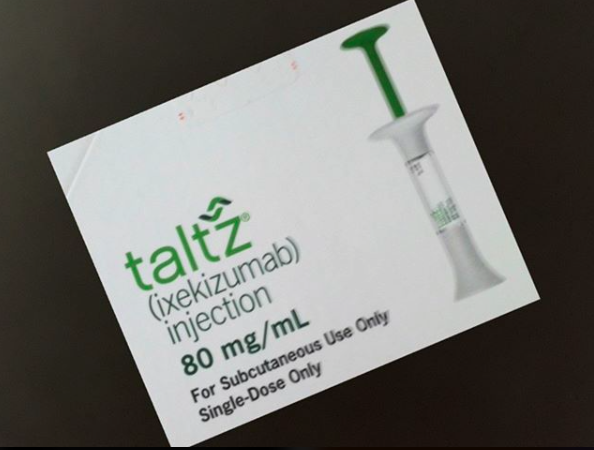Refractory Scalp Psoriasis: A Closer Look at Ixekizumab (Taltz)
Ixekizumab (Taltz) for Refractory Scalp Proriasis
Psorasis is a common skin disorder that affects up to 3 % of the world. There are a variety of treatment approaches for this disease including topical steroids, steroid injections, vitamin D analogues. Pills such as methotrexate, retinoids or cyclosporine may be considered - as can various types of ultraviolet light therapy. These treatments are known as “non specific” treatments because they affect many pathways inside cells - even the ones we didn’t intend them to affect. This potentially increases the chances of side effects.
An entirely new era has unfolded using specific so called ‘targeted’ treatments. Targeted treatments differ from non specific treatments because they act to shut down specific inflammatory pathways inside cells. A variety of biologic medicines approved by the FDA to treat moderate to severe psoriasis include the TNF inhibitors and the IL12-23 inhibitors and the IL17 inhibitors to name a few.
Ixekizumab (Taltz), an IL-17A inhibitor, was FDA and Health Canada approved in 2016 for the treatment of moderate to severe psoriasis. A number of studies have examined the benefits of ixekizumab in the treatment of scalp psoriasis. In 2017, Reich published date from 3 large scale randomized trials showing the benefits of ixekizumab in the treatment of scalp psoriasis over a period of 60 weeks (ie the so called UNCOVER 1-3 trials). These data show that a greater proportion of patients treated with ixekizumab reported improvements by week 12 and a greater proportion maintained these at week 60 compared to those using etanercept (Enbrel) or placebo. For example by week 12 about 80 % had complete clearance with ixekizumab on an 80 mg q 2 weeks dosing and 70 % had complete clearance on a q 4 weeks dosing schedule compared to about 50 % of those receiving etanercept.
The new era of psoriasis treatments are exciting and offer new hopes for patients who do not benefit from standard therapies.
Reference
Reich K, et al. 2017
This article was written by Dr. Jeff Donovan, a Canadian and US board certified dermatologist specializing exclusively in hair loss.

